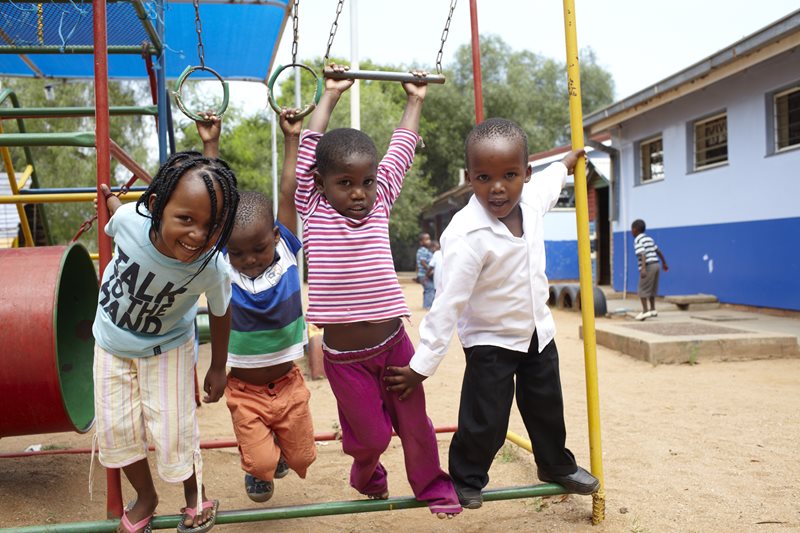Tlokweng is on the outskirts of Botswana’s financial and administrative centre
Gaborone is the largest city and the capital of Botswana. It is the political as well as the economic centre of Botswana and is located just 15 kilometres from the border with South Africa.
The region has experienced rapid population growth since Botswana gained independence in 1966. Less than 5000 people lived In Gaborone and its surroundings in the mid-1960s, and today the area has a population of approximately 422,000.
This rapid growth has brought some challenges: poverty and inequality have increased in Gaborone. Many families, who have moved here from rural areas in search of a better life, are struggling to make ends meet. Tlokweng itself has also been greatly affected by the growth of Gaborone.
Supporting vulnerable children and their families in Tlokweng
Botswana has put tremendous effort into fighting HIV/AIDS and providing anti-retroviral treatment to those affected. But it is a hard battle, as it is estimated that more than 20 per cent of the population are living with HIV/AIDS. Only through education and awareness-raising can the devastating effects of HIV/AIDS be contained. Botswana’s ambitious targets in fighting HIV/AIDS have proven very successful so far, but they have also been very costly.
Thousands of children in the Tlokweng and Gaborone area have lost parental care or will lose it in the years to come. Most commonly, these children are cared for by the extended family, but sometimes it is impossible for the extended family to take on responsibility for even more children. Grandparents are often the only ones left to care for orphaned children, and they usually depend on support from the social system to meet their daily needs.
Growing up with ill parents or losing parents can be devastating for the development of children, and it is therefore extremely important to reach these children with psychosocial support.
What we do in Tlokweng

SOS Children’s Villages has been supporting families and children in Tlokweng since 1987.
Strengthen families: SOS Children’s Village Tlokweng works with the government and local community-based organisations to reach out to vulnerable children and families in Tlokweng as well as in Gaborone. Most of the households we support are headed by terminally ill parents or by grandparents. Psychosocial support is important for children from such fragile backgrounds. We support parents and caregivers in acquiring income-generating skills. Where needed we support families in sending their children to primary or secondary school.
Care in families: Since 1986, children with no one to care for them can find a loving home in an SOS family in Tlokweng. Some of these families live in houses that are integrated in the community. Together with siblings they grow up under the care and love of an SOS mother who is supported by social workers. In an SOS family, the children all have access to schooling.
We work closely with the children’s family of origin so that they can return to live together again. We make sure that they are in regular contact and monitor the relationship between the child and their family. When the child goes back to stay with their family, we continue to support them.
Support for young people: As young people grow, we work to secure access to quality education and to support them in developing the skills and experience they need to find decent work and begin to live independently.